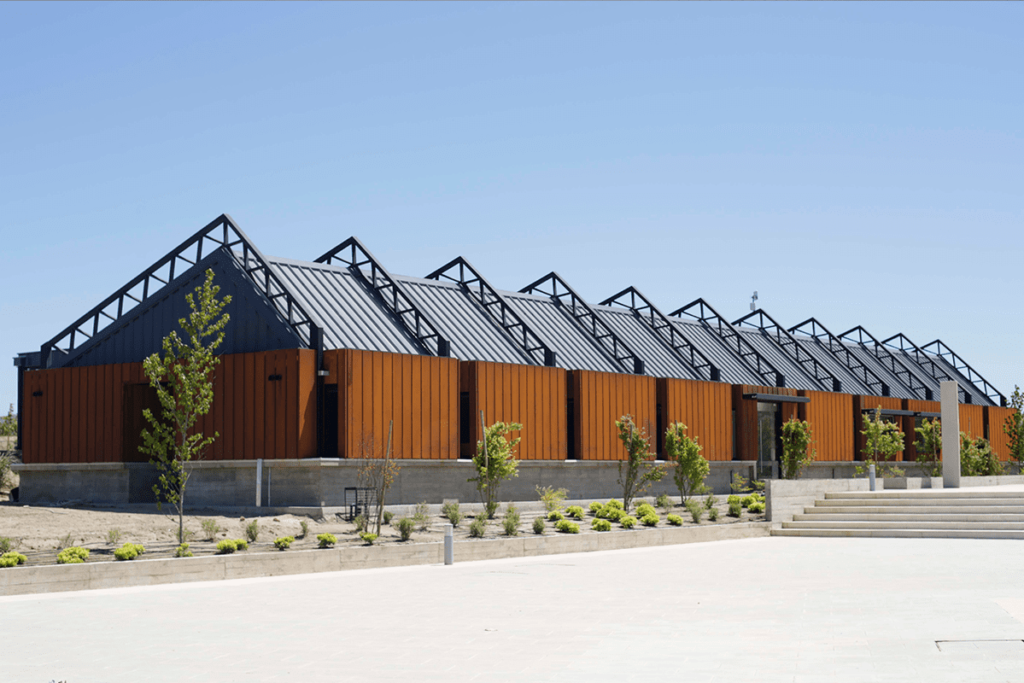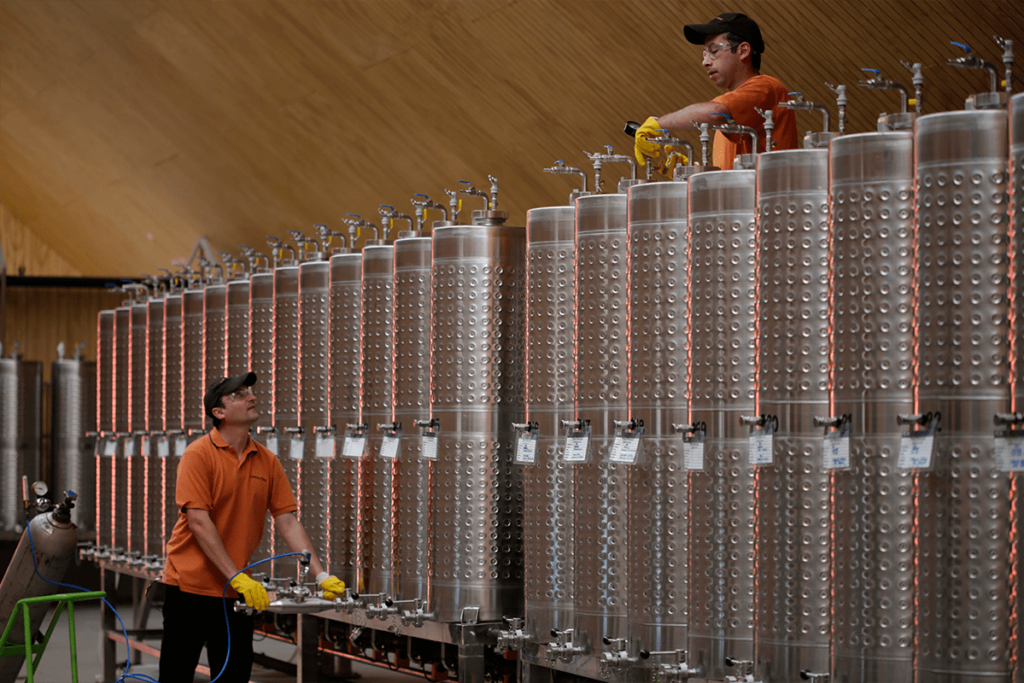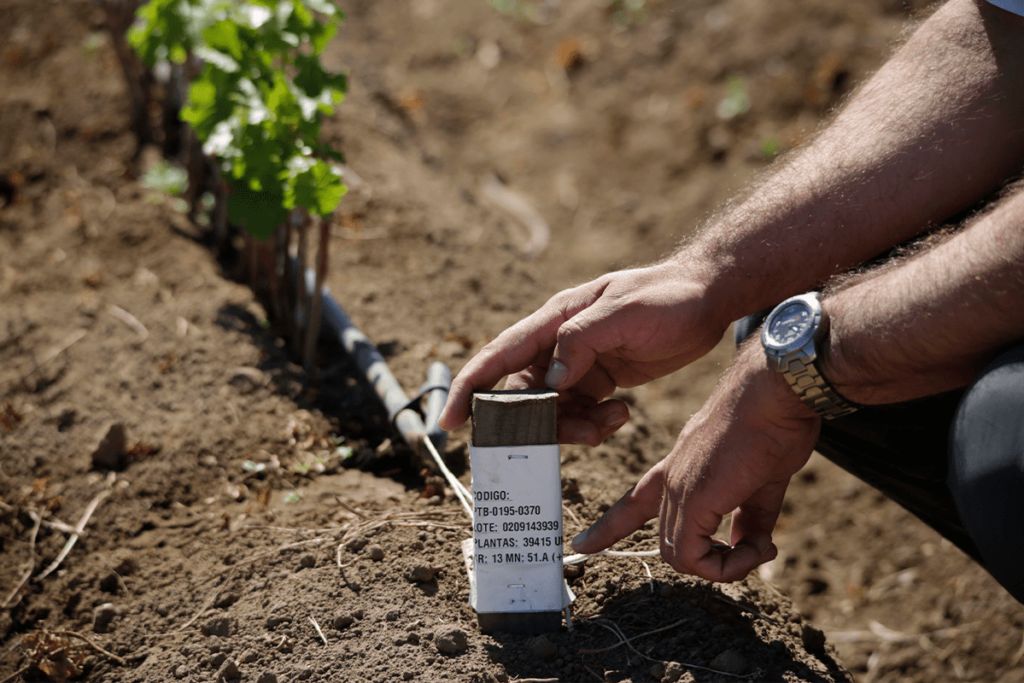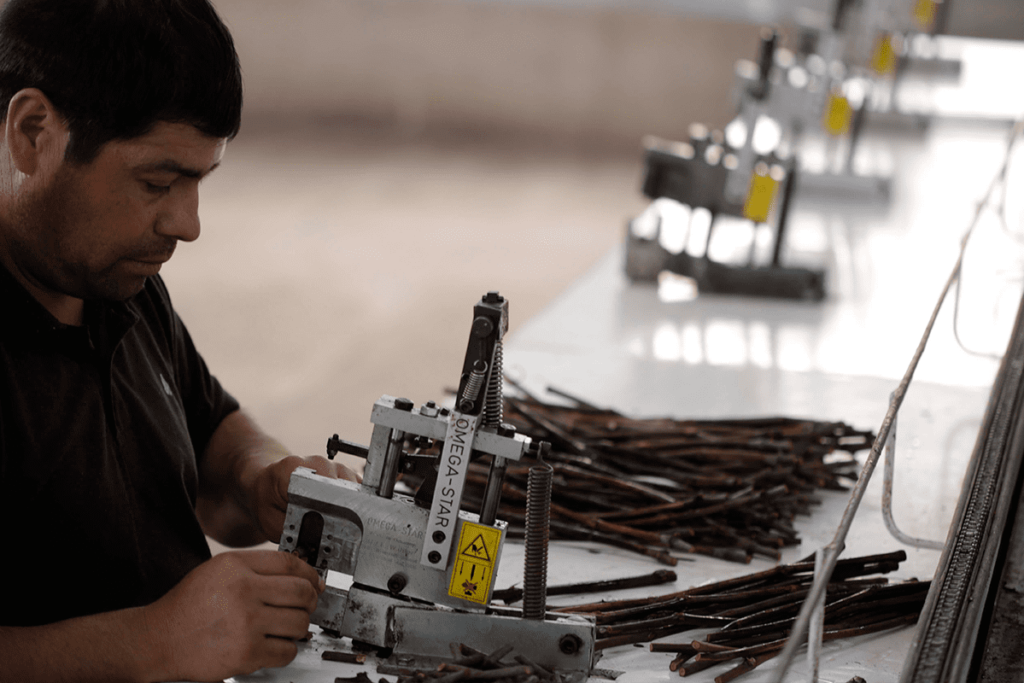The Center for Research and Innovation of Viña Concha y Toro) has achieved the production of plants that are more prepared for climate change and has promoted smart water irrigation systems.
Eight years have passed since the opening of Viña Concha y Toro’s Center for Research and Innovation (CRI). It is a modern modular building of around 1,500 m2, built in the heart of Maule Valley, which was born as a response to the changes and challenges that the wine industry constantly faces. This initiative, also a pioneer in the field, aims to promote applied research and develop new technologies or tools that can be put at the service of the wine industry in Chile and the world.
Thanks to its modern infrastructure, which includes an Agricultural and Enological Laboratory, another Molecular Biology Laboratory, an Experimental Wine Cellar and an Extension Center, without ignoring the human and multidisciplinary team that carries out the investigations, fortunately its results have been multiple and encouraging.


Plants 2.0
One of the most important achievements that the CRI has recently announced is related to its focus on the adaptability of the industry and its vineyards to climate change. With this objective, they managed to create the so-called “Plants 2.0”: a vine free of 13 viruses and 5 wood fungi. Without genetic modification, in 2022 this project achieved the first planting of this type of vineyards located in El Fundo El Triángulo (in Casablanca Valley), which is more prepared for climate change thanks to its more resistant plants and free of complex diseases. This fact marks a new quality standard within the plants of the Viña Concha y Toro Agricultural Management, thanks to the work that this project began in 2016 using the most sensitive analytics in the world: qPCR.


Water saving for irrigation
Another successful advance that the CRI has achieved is precision irrigation to save water, which the company has applied to 900 hectares of vineyards in Chile. Thanks to a water efficiency project whose plan consisted of implementing an intelligent irrigation system that allows calculating the specific water demand for each vineyard (that is, when and how much to irrigate), savings of an average of 18 % have been achieved.
But as we explained previously, the transfer of knowledge to the community is also part of the role of the CRI. For this reason, in 2022 articles were published in international scientific journals, five collaboration agreements were signed with universities and four with technology companies. In addition, it permanently receives master’s and doctoral students who are doing their thesis.

